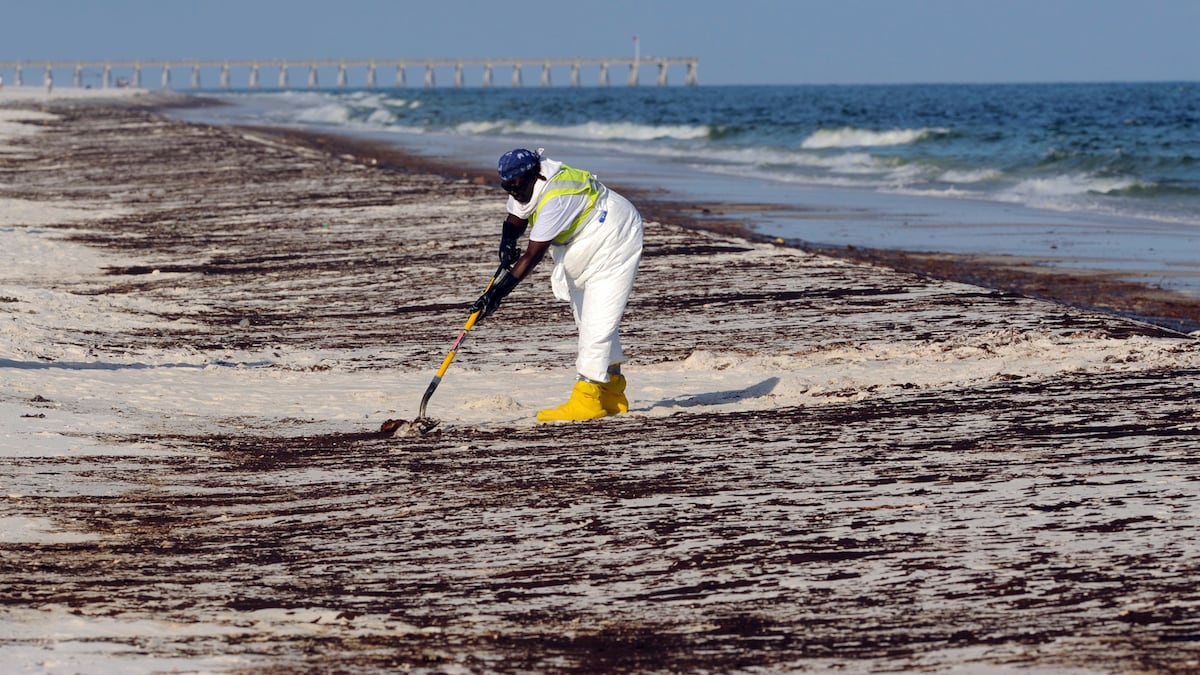Deepwater Horizon: Ignoring "Drill, Baby, Drill"? A Legacy of Neglect and the Price of Recklessness
The Deepwater Horizon oil spill, a catastrophic event that unfolded on April 20, 2010, remains a stark reminder of the potential consequences of prioritizing profit over safety in the energy industry. The infamous "Drill, Baby, Drill" slogan, a rallying cry for increased domestic oil production, took on a sinister irony in the aftermath of the disaster. This article delves into the factors contributing to the Deepwater Horizon tragedy, examining how a culture of cost-cutting and regulatory oversight failures ultimately led to the worst marine oil spill in history.
The "Drill, Baby, Drill" Mentality: A Recipe for Disaster?
The phrase "Drill, Baby, Drill," popularized during the George W. Bush administration and later embraced by other politicians advocating for increased energy independence, symbolized a push for rapid expansion of offshore drilling. While promoting energy security was a legitimate goal, the focus often seemed to overshadow critical considerations of environmental protection and operational safety. This mindset, critics argue, fostered a climate where corners were cut, safety procedures were overlooked, and regulatory scrutiny was insufficient. The pressure to meet production targets and maximize profits, coupled with a perceived lack of robust oversight, created a dangerous environment ripe for disaster.
Cost-Cutting and Safety Compromises
Investigations following the Deepwater Horizon explosion revealed a disturbing pattern of cost-cutting measures and inadequate safety protocols. BP, the operator of the Deepwater Horizon rig, faced internal pressure to keep costs down and maintain a competitive edge. This pressure, it is argued, led to compromises on safety measures, including:
- Inadequate well design and testing: The Macondo well, the source of the spill, reportedly lacked proper cementing, a crucial step in preventing the escape of hydrocarbons.
- Insufficient safety equipment and training: Reports indicated that safety equipment was either faulty or insufficient, and personnel lacked adequate training in emergency procedures.
- Ignoring warning signs: Numerous warnings about potential hazards were allegedly ignored or dismissed in the pursuit of rapid drilling and production.
Regulatory Failures: A Broken System?
The Deepwater Horizon disaster also exposed significant weaknesses in the regulatory framework governing offshore drilling. The Minerals Management Service (MMS), the agency responsible for overseeing offshore drilling activities at the time, faced accusations of being too close to the industry it was supposed to regulate, leading to conflicts of interest and inadequate enforcement.
The Consequences of Lax Oversight
The MMS's inadequate oversight contributed to the disaster in several ways:
- Insufficient inspections and enforcement: The agency was reportedly understaffed and lacked the resources to conduct thorough inspections of offshore drilling operations.
- Weak enforcement of safety regulations: Penalties for violations were often seen as insufficient to deter companies from cutting corners.
- Lack of transparency and accountability: The agency's internal culture reportedly lacked transparency and accountability, making it difficult to identify and address safety concerns.
The Human Cost: Beyond the Environmental Impact
The Deepwater Horizon oil spill had devastating consequences for the environment, coastal communities, and the livelihoods of countless individuals. The immediate loss of life – eleven workers perished in the explosion – was a tragic reminder of the inherent risks associated with offshore drilling. The long-term effects on marine life, coastal ecosystems, and human health continue to be felt today. The economic impact on Gulf Coast communities, from fishing to tourism, was also profound and long-lasting.
Learning from the Tragedy: A Path Forward?
The Deepwater Horizon disaster served as a wake-up call, prompting significant changes in offshore drilling regulations and safety protocols. However, the legacy of the spill underscores the need for continuous vigilance and a renewed commitment to prioritizing safety over profit. The lessons learned must extend beyond stricter regulations to encompass a fundamental shift in industry culture, one that values safety and environmental protection as paramount concerns.
Keywords: Deepwater Horizon, oil spill, BP, drilling, offshore drilling, environmental disaster, safety regulations, regulatory failure, cost-cutting, "Drill, Baby, Drill," MMS, Gulf of Mexico, environmental impact, economic impact, human cost.
